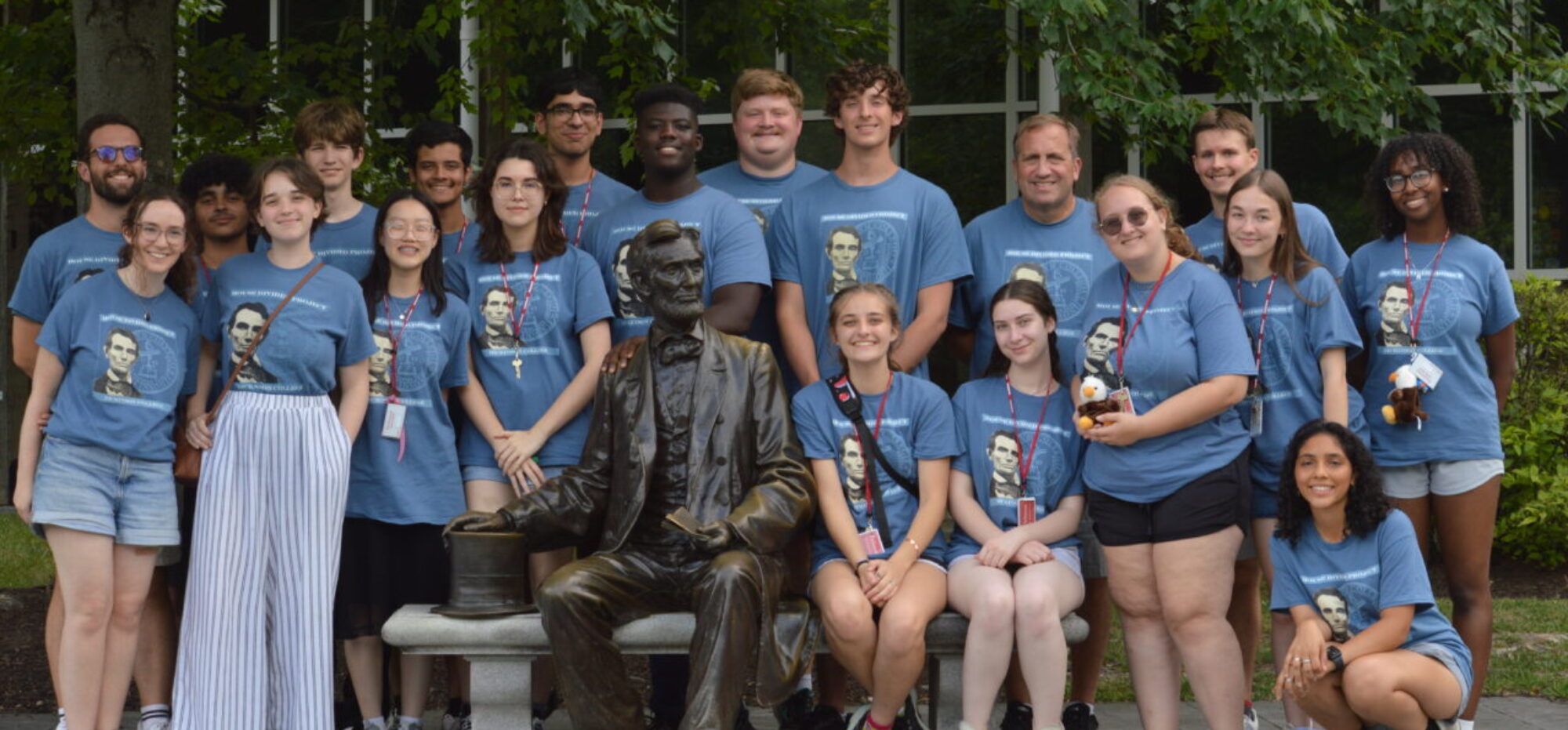Our course of study will help convey historical depth to some foundational debates regarding freedom, democracy, and self-government while also carefully preparing students for the rigors of college.
2025 Featured Texts (21 total)
By chronological order
- Phillis Wheatley, “On Being Brought From Africa” (1773)
- Thomas Jefferson, Declaration of Independence (1776)
- Constitutional debates, featuring John Dickinson on slavery (1787)
- US Constitution on Slavery (1787)
- Sojourner Truth, Woman’s rights speech (1851)
- Frederick Douglass, Fifth of July speech (1852)
- Abraham Lincoln, private letters on slavery and sectionalism (1841, 1855)
- Abraham Lincoln, House Divided speech (1858)
- Frances Harper, Bury Me in a Free Land (1858)
- Abraham Lincoln, First Inaugural Address, (1861)
- Frederick Douglass, Editorials (1860-61)
- Abraham Lincoln, Gettysburg Address (1863)
- Frederick Douglass, Mission of the War (1864)
- Anna Dickinson, Perils of the Hour (1864)
- Reconstruction Amendments (13th, 14th, 15th) (1865-70)
- Frederick Douglass, Emancipation Memorial speech (1876)
- Emma Lazarus, New Colossus (1883)
- Esther Popel, “Flag Salute” (1934)
- E.B. White on Freedom and Democracy (1940, 1943)
- Martin Luther King, Jr., Letter from Birmingham Jail (1963)
- Amanda Gorman, “The Hill We Climb” (2021)
Previously Featured Texts
By chronological order
-
- Aristotle, Defense of slavery in Politics (350 BCE)
- John Locke, Second Treatise on Government (1689)
- Abigail and John Adams, Letters (1776)
- Olaudah Equiano, Interesting Narrative (1789)
- Frederick Douglass, Narrative (1845)
- Elizabeth Cady Stanton, Declaration of Sentiments (1848)
- William Wells Brown, Clotel (1853)
- Dred Scott Decision (1857)
- Abraham Lincoln, Autobiographical Sketch (1859)
- Martin Delany, Blake (1859-61)
- Frederick Douglass,“Men of Color, To Arms” (1863)
- Augusta Jane Evans, Macaria (1864)
- Abraham Lincoln, Blind Memorandum (1864)
- Abraham Lincoln, Second Inaugural Address (1865)
- Frances Harper, We Are All Bound Up Together (1866)
- Susan B. Anthony, Trial statement (1873)
- Frederick Douglass on Lincoln’s Second Inaugural (1881)
- Booker T. Washington, Up From Slavery (1901)
- W.E.B. DuBois, The Souls of Black Folk (1903)
- Langston Hughes, Harlem (1951)
- Toni Morrison, Beloved (1987)
- Colson Whitehead, Underground Railroad (2016)
Featured Documents for Lincoln – Douglass Debates
Team Lincoln
- Lincoln’s private letters on the sectional crisis (1841, 1855)
- Lincoln’s “House Divided” speech (1858)
- Lincoln, Autobiographical Sketch (1859)
- Lincoln’s First Inaugural (1861)
- Lincoln’s Gettysburg Address (1863)
- Lincoln, Blind Memorandum (1864)
- Lincoln’s Second Inaugural (1865)
Team Douglass
- Frederick Douglass, Narrative (1845)
- Frederick Douglass’s “Fifth of July” speech (1852)
- Selections from Frederick Douglass editorials (1860-61)
- Douglass’s “Men of Color, To Arms” (1863)
- Douglass, Mission of the War (1864)
- Douglass, Emancipation Memorial speech (1876)
- Douglass on Lincoln’s Second Inaugural (1881)
At the House Divided Project, we have developed a series of curricular innovations on the study of slavery that seem almost ready-made for serving the goals of the Knowledge for Freedom program. First, we understand that the best way to study slavery is to study the resistance to it. Students need to appreciate the myriad of ways that ordinary human beings fought against the systemic efforts to dehumanize them. They also need to appreciate the connection between action and ideas. There was a centuries-long movement to overthrow the intellectual and political tyranny of slavery–a debate that played out not only in street protests and electoral politics, but also in art and literature and in various cultural ways that still remain under-appreciated by many Americans.
WATCH PROF. PINSKER TEACH THE GETTYSBURG ADDRESS
Slavery, or the idea of holding property in man, might well be the most insidious repudiation of American ideals. And yet, slaveholding was both widespread and long-entrenched in the United States, a country that has always prided itself on embracing universal natural rights. How was such a fundamental contradiction even possible? That is the kind of searing question that should help open a gateway toward both deeper learning and more engaged citizenship. Through a series of close reading exercises that emphasize the importance of empathy and complexity, we will pursue this question with seminar participants.
Learn more about close reading tactics from this handout:
